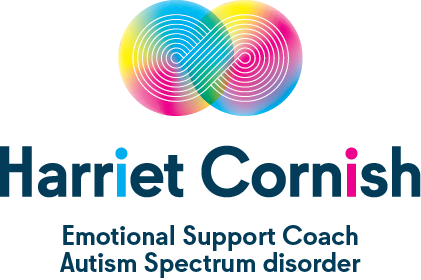About
Whether you’re autistic, have autistic family members, or friends, talking with someone who genuinely understands autistic families can make a difference.
What is high-functioning autism?
“High-functioning autism” isn’t an official medical term or diagnosis. It’s an informal one to differentiate between autistic individuals who can communicate, read, write, and handle basic life skills like cooking, getting dressed, going to school and work.
The word “Aspergers” used to be used but the diagnoses now falls under the broader spectrum of ASD.

Most high-functioning diagnosed individuals will struggle with some of the following:
- difficulty making conversation in social settings
- difficulty making or maintaining close friendships
- discomfort during eye contact
- difficulty understanding sarcasm or idioms
- lack of inflexion when speaking
- trouble reading facial expressions and body language
- problems reading the emotions of others
- difficulty showing empathy
- being blunt and to the point
- coming across as rude, due their abruptness
- difficulty in discussing or recognising feelings
- taking things literally
- difficulty in being flexible
- appearing to be selfish
In a world that appears to cater specifically for the neurotypical, I can help you learn and understand more about the diagnosis of ASD where you or the family members are high-functioning.
Hello, my name is Harriet Cornish & this is my story
I am married and have two children, two dogs and a chicken!!
My knowledgeable journey, alongside autism spectrum disorder (ASD), began when my son was diagnosed with Aspergers at the age of 10 back in 2012. I say my “knowledgeable journey” because before the diagnosis I was aware that he wasn’t meeting all the usual required markers in education or behaviour, but I didn’t know why. I was called into the school office daily to be advised of his unusual behaviour, which teachers and pupils brought to their attention. I love him so much and just wanted to help him be happy. All I wanted was to learn why my son’s behaviour was different and how to help him adjust to classrooms, piers, learning, noise, etc.
After he received the diagnosis of Aspergers I learnt everything I could and used that knowledge to work with the SENCO department and him so that he could feel happy, secure and safe at school, on holidays, in public places and at family gatherings.
My son is now 21 and in his final year at university, having just successfully completed an industry third year. He has friends, is working hard and is happy. During our journey together I became aware that Autism is hereditary and am now aware of many members of my extended family, some with and some without the diagnoses of Autism, ADHD or anxiety.
I have now lived alongside autism for 28 years and my personal journey wasn’t all plain sailing.
I wish I could have had someone who understood my journey, listened and shared helpful information. As my children became more independent, I wanted to give back. I became an elderly volunteer companion, to help with loneliness, and continue to do so. I volunteered for two years as a nursing assistant in Hospice in the Weald, Five Ashes.
Following that an opportunity arose to be an Emotional Support Worker, online, for a charity specialising in neurodiversity 2 ½ years ago and I realised that this was an area where I really could provide support.
My clients are from across the UK, Wales, Ireland and Scotland. Every day I meet individuals who would like to discuss the diagnosis of high-functioning autism or a family member who is wondering if their child or partner could be autistic.
We are not born knowing everything and it is not until something unfamiliar enters our lives we find we need to educate ourselves to move forward.

Qualifications & Experience
- WPF certificate in counselling skills from The Counselling Centre in Tunbridge Wells, 2008
- 2 ½ years as an Emotional Support Worker for charity
- 500 hours of emotional support time online
- 28 years living alongside Autism Spectrum Disorder
ESC role, protocols & boundaries
As an Emotional Support Coach (ESC) for high-functioning autism my role is to support clients not in need of counselling but in need of short-term emotional support.
Find details of protocols and boundaries here.
What does it cost?
I charge a fee of £25 per 1 hour session paid in advance.
If I hadn't reached out, I might never have got to where I am now
“Hello Hattie! I just wanted to drop you a message and reiterate just how grateful I am for all your help. Some changes have happened in my life this year and I know that if I’d never reached out to you, I might never have gotten to where I am right now. It’s crazy to think that this was waiting for me all along. Thank you for helping me see that there is better out there.”
Josie
